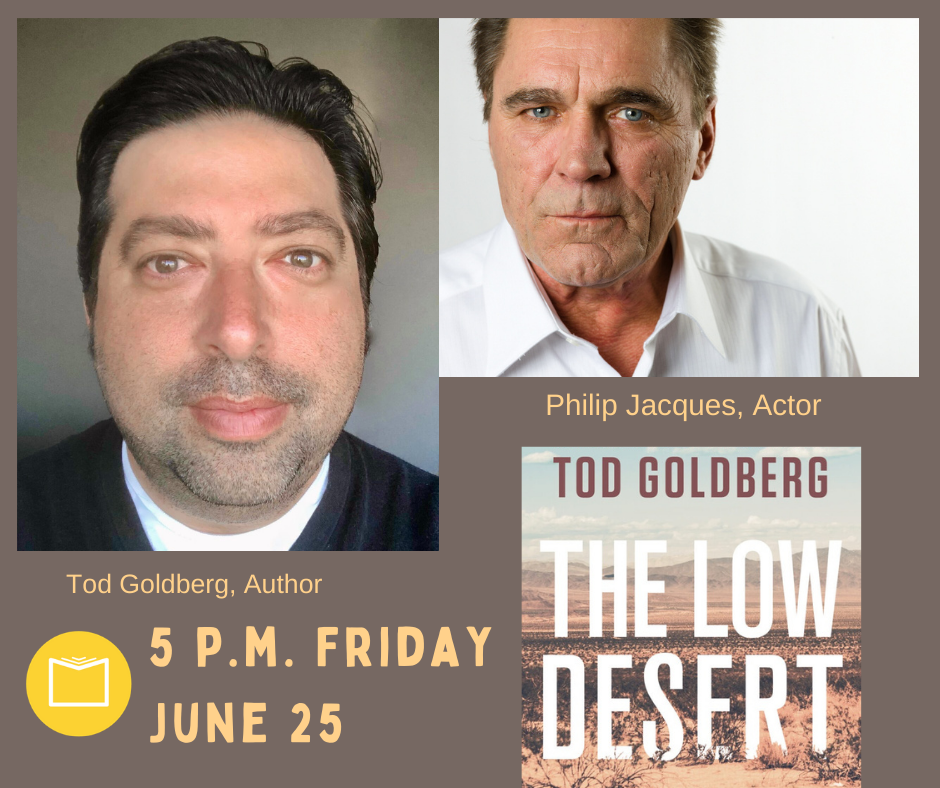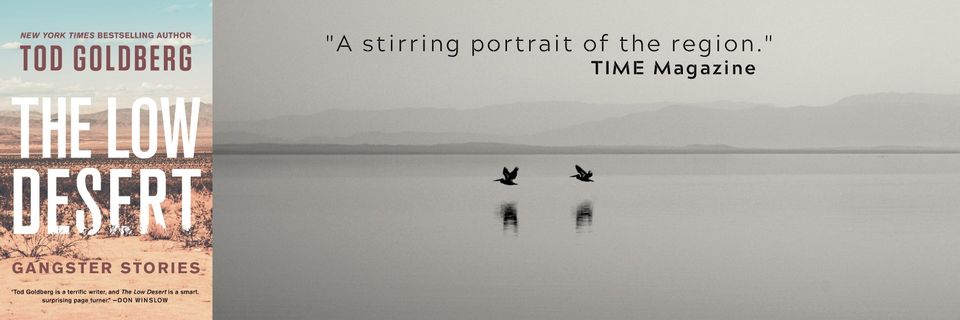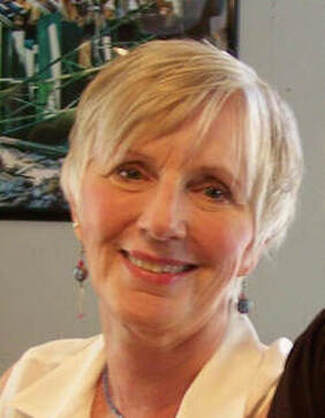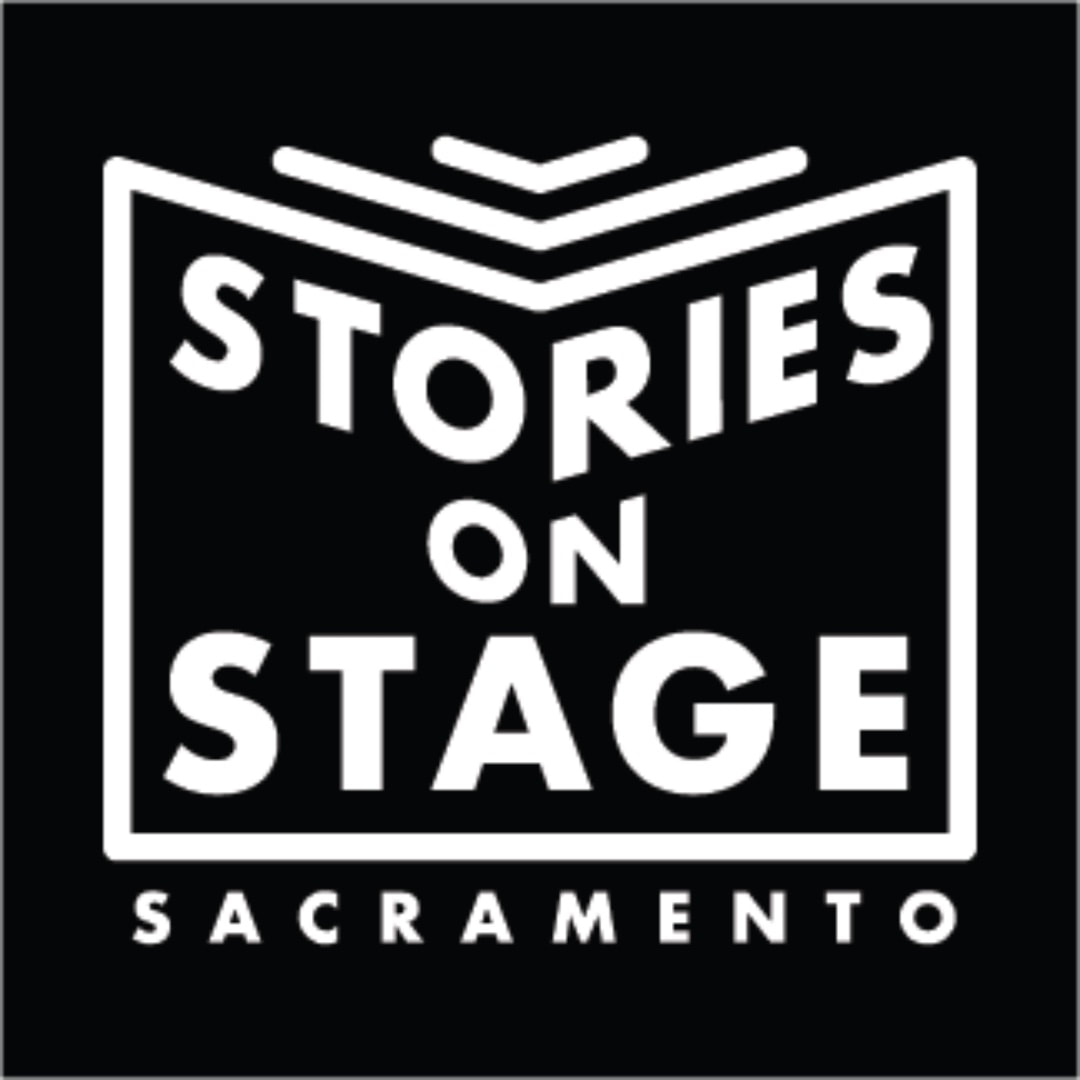Sue Staats has a few questions for Tod GoldbergWho can resist a quiz? It’s the surest way to get a reader hooked, I read somewhere. So, this month we’re testing your knowledge about our featured writer, Tod Goldberg, and we’re hoping you’ll keep reading… Tod Goldberg, our June featured writer, is:
If you picked "all of the above," you’d be right. Which is why I only had one choice when it came to my first question. SUE: Tod, How do you manage to keep all these plates spinning? Do you sleep? TOD: Well, not that I'm counting, but...it's actually THREE novels...When you lay it out like the above, it sounds like a lot, but the key is this: I am doing what I've always wanted to do, what I am passionate about, and what gives me joy. It certainly feels like work sometimes, but it's hard to complain about being compensated for living the life you'd hoped to live. The thing about being a professional writer is that your time is not infinite. I have so many stories to tell and so I'm going to try to get them all out, in whatever medium is best. SUE: Since you primarily write crime novels and short stories, I was going to ask you why the fascination with this shadowy world, but you explained it so well in this excellent (and funny) essay in CrimeReads that I’ll just post the link here and instead ask you this: Have you ever tried to write fiction in any other genre? Or “literary” fiction? Why did crime fiction stick? I don't know how many short stories I've published in my life, but plenty of them have been about people staring into the middle distance and pondering their existential fate with no mentions of even a single gun! But I think I've always written about violence of one kind or another in much of my work, but that's because people are violent, and those people don't ask themselves if they are living in a crime drama or piece of literary fiction...they're just living. TOD: Sure. Plenty of my short stories would probably be considered literary fiction— even in The Low Desert, there are at least two (Palm Springs and Pilgrims) which do not fit snugly into the crime genre by any means. I don't know how many short stories I've published in my life, but plenty of them have been about people staring into the middle distance and pondering their existential fate with no mentions of even a single gun! But I think I've always written about violence of one kind or another in much of my work, but that's because people are violent, and those people don't ask themselves if they are living in a crime drama or piece of literary fiction...they're just living. It's interesting to me, this notion that something is crime and something is literary because of the inevitable turn in someone's life where they come into conflict and whether or not an actual violation of the law occurs. Is it crime fiction if someone speeds in a story? Anyway. A long way of saying...crime fiction stuck because we are ruled by crime, in all aspects of our life, and everything else is just waiting for the bad thing to happen. SUE: The stories in your collection The Low Desert (source of our June featured story) are terrific—moody, sad, funny, and tender. Most of them are about characters whose lives are not going well. To me, the stories often have an unfinished, “to be continued…” quality. Several of them feature the same characters, a few from your Gangsterland novels, and some new ones. Morris Drew is one of these new characters, Tania the cocktail waitress is another. Will we see these two in future novels? And are they linked to the world populated by the characters in the Gangsterland stories? TOD: You'll see more of Morris Drew, for sure—I just sold a novel based on the title story of The Low Desert, about organized crime at the Salton Sea in the 1960s, which features him—and he is related to the Gangsterland stories! He's the uncle of Matthew Drew, the rogue FBI agent who is hunting Sal Cupertine. It's all connected... As for Tania, I'm afraid her story is complete now. You do find out that her story is connected to Gangsterland in "Ragtown," the story in The Low Desert that culminates her sad tale (and why it is so important to read the book in order!). I think about Tania a lot, though, like she's a sister I've lost contact with, who is out there living her life. I hope she is happy. SUE: We’ll meet Morris Drew in our Stories on Stage reading of “The Salt.” He’s old in this last story in the collection about him, and sick, and still dealing with unsolved mysteries at the place where they began, the Salton Sea. Like Sal Cupertine from your Gangsterland novels, he’s a man who’s done bad things, looking to make up for it in some way. But he’s on the side of the law. Tell me about Morris. How is he different from Sal? How is he the same? How did he evolve? TOD: The first time I wrote Morris Drew was in 1995. He was in a terrible story I wrote called "Somewhere Apart" that was thankfully rejected by about a million literary magazines at the time. He also showed up in my book Living Dead Girl. So I've been thinking about him for a long time, building his story in my head, creating his voice, pondering his relationship to violence and justice and then writing three very long stories about him ("The Last Good Man," "The Salt," and "The Low Desert"). He is in fact a man who has done bad things...but he did them under the color of the law, in service of a code that he believed in, but that maybe didn't serve society too well. In that way, he's the opposite of Sal Cupertine. Sal operates outside of the law, always, and is defined by his motto— stolen from Bruce Springsteen—that everybody dies, baby, that's a fact. Where they are similar, I guess, is that somehow I've been able to create two men who are intimate with violence and duplicity but who, nevertheless, you end up rooting for. SUE: I forgot to include another of your jobs in my opening quiz: adapting the Gangsterland novels for TV. I understand they’re being turned into a series on Amazon. When you were first starting out, did you ever imagine this happening? Are you involved in the process (script writing, producing?) TOD: Well, whether or not it ever reaches the air is...up in the air. And whether or not it's on Amazon anymore, well, that's also up in the air. But to be candid, yes, I did imagine this happening! I knew it was a story that could be adapted for TV. And I've been intimately involved in the whole process. It's been a great experience. SUE: You’re very active on social media (follow Tod on Facebook, or Instagram, or Twitter. I get at least one laugh a day!). I’m especially amused by you trolling your community through Next Door (a social networking service for neighborhoods.) How is it that you haven’t been run out of town? Or, do your Indio neighbors secretly want a Fuddrucker’s on the corner? I have a (perhaps unhealthy) obsession with how ludicrous people are on NextDoor—there was woman who literally complained about the MOON the other day and then a few days later, another person complained about the WIND, as if the assistant manager could fix either—and so I like to go in there and cause trouble and report back on it in my various social media feeds. TOD: I have a (perhaps unhealthy) obsession with how ludicrous people are on NextDoor—there was woman who literally complained about the MOON the other day and then a few days later, another person complained about the WIND, as if the assistant manager could fix either—and so I like to go in there and cause trouble and report back on it in my various social media feeds. Because the thing is this: If your neighbors call the cops when they see someone of a different nationality walking on the street, it's not because they're trying to keep the neighborhood safe, it's because they're trying to keep the neighborhood white. I have no tolerance for this kind of thing...or conspiracy theories...or people complaining that the moon is too bright, and I feel like my fans would periodically like Sal Cupertine to show up places to clean up that mess...so he does! SUE: Thanks, Tod. My local Next Door silly complainers could use a dose of Sal Cupertine, too!
Sue's fiction and poetry have been published in The Los Angeles Review, Graze Magazine, Tulip Tree Review, Farallon Review, Tule Review, Late Peaches: Poems by Sacramento Poets, Sacramento Voices, and others. She earned an MFA from Pacific University, and was a finalist for the Gulf Coast Prize in Fiction and the Nisqually Prize in Fiction. Her stories have been performed at Stories on Stage Sacramento and Stories on Stage Davis, and at the SF Bay-area reading series “Why There Are Words.”
0 Comments
Leave a Reply. |
|
Who We AreLiterature. Live!
Stories on Stage Sacramento is an award-winning, nonprofit literary performance series featuring stories by local, national and international authors performed aloud by professional actors. Designated as Best of the City 2019 by Sactown Magazine and Best Virtual Music or Entertainment Experience of 2021 by Sacramento Magazine. |
|




 RSS Feed
RSS Feed
